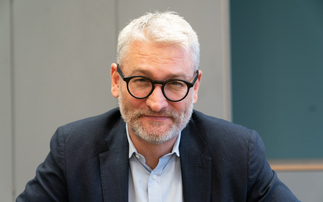In the latest in a monthly series of DC columns from Newton Investment Management, Curt Custard warns investors of the possibility of further volatility in the months ahead
As we roll into a new year, it is tempting to extrapolate recent trends into the period ahead. However, I believe that would be a mistake. For the first time in almost a decade we are seeing markets begin to factor in the impact of a tightening cycle being put into place by the US Federal Reserve (Fed).
The Fed's previous hint at tightening in 2013, when it began to taper its bond-purchase programme, led to turbulence in the bond market (the ‘taper tantrum'). To find a tightening cycle linked to inflationary pressures you need to look all the way back to 2004 to 2006, when the Fed wanted to take some of the froth out of the housing market.
Many investors (and market participants) have either never known a proper tightening cycle or have forgotten what it means for asset prices. Since the global financial crisis, the authorities have engaged in financial repression, which, among other things, has dampened the level of volatility in markets and lulled many into an assumption that markets generally go up in a well-behaved manner.
But my bet is that there is going to be a change in that dynamic in 2018. Whether you think markets are overvalued, fully valued or undervalued, and whether you think we are in for a further surge higher in equity markets or a steep correction, one thing seems more or less certain: we are very likely to have more volatility in markets over the coming months.
If one believes that markets are going higher, one might ask why the path taken towards those higher returns is important. We think it is important for two different reasons:
• the prospective Sharpe ratio (the risk-adjusted return) will change between assets, resulting in a structural shift in relative attractiveness; and
• volatility may affect investors' behaviour as they wake up to the change in the environment.
The former reason is critical because prospective Sharpe ratios affect how many portfolios are constructed and run. Witness the rout in the equity market this February, as low-volatility funds, which have been used by just a small proportion of investors, were forced to deleverage. The second reason is important because many defined contribution (DC) schemes and their members have been lulled into a sense of security by the low-volatility environment. As it dawns on them that markets can go both ways, they too may be tempted to reallocate their capital. This is especially true for those DC members closest to retirement, whose time horizons are shorter.
The prolonged period of calm (before the storm?) means that grey-haired investors with long memories such as myself may be able to enjoy a rare advantage over their younger colleagues!
Curt Custard is chief investment officer at Newton Investment Management
Important information: This is a financial promotion. This document is for professional investors only. These opinions should not be construed as investment or any other advice and are subject to change. This document is for information purposes only. Any reference to a specific security, country or sector should not be construed as a recommendation to buy or sell investments in those countries or sectors. Issued in the UK by Newton Investment Management Limited, The Bank of New York Mellon Centre, 160 Queen Victoria Street, London, EC4V 4LA. Registered in England No. 01371973. Newton Investment Management is authorised and regulated by the Financial Conduct Authority.







